Natural Home Remedies for Blood Clots
By Dr Smita Barode +2 more

Get,

to manage your symptom
Get your,


4 Cr+ families
benefitted

OTP sent to 9988776655



You’ve successfully subscribed to receive
doctor-approved tips on
Whatsapp

Get ready to feel your best.

Hi There,
Download the PharmEasy App now!!


Register to Avail the Offer
Send OTPBy continuing, you agree with our Privacy Policy and Terms and Conditions

Hi There,
Sign up on PharmEasy now!!
Trusted by 4 crore+ families

OTP sent to 9988776655



You have unlocked 25% off on medicines




Code: NU25

Comments


Leave your comment here
By Dr Smita Barode +2 more
Table of Contents
Gel-like collections of blood that form in our veins or arteries are known as blood clots. The blood changes its form, going from liquid to partially solid, jelly-like. Clotting is a normal body function that helps the body from excessive blood loss when we suffer from injuries or wounds. Nevertheless, when these blood clots are formed in places where they do not get dissolved, or on their own, they can cause serious threats to your health1.
A blood clot is usually initiated as a response to a wound on a blood vessel. An unwanted blood clot is called a thrombus. When a blood clot is stationary it is called thrombosis, while when this blood clot moves through the body, it is identified as a dangerous condition called thromboembolism or embolism. Blood clots can form both in the arteries (arterial clots) or the veins (venous clots).
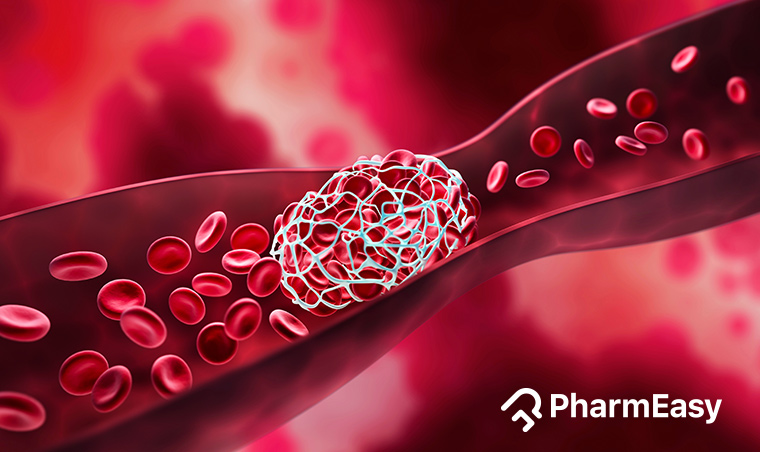
Knowledge of your condition and the risk factors involved may help you identify and prevent this potentially life-threatening condition.
Did you know?
There can be several reasons for blood clot formation. You may also get a blood clot if you2:
Symptoms of blood clots may depend on its location in your body. Some people may experience no symptoms at all.
Read along further for a few home remedies for blood clot treatment for you to try at home. You must always consult your doctorbefore trying any of these on your own. Please note these might give momentary relief and not treat your clot permanently.
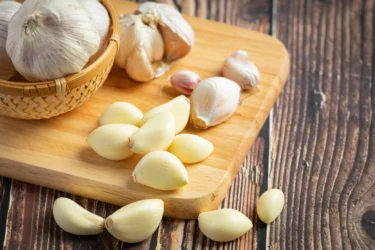
Garlic is known as an effective anti-coagulant food as it might prevent clotting of blood3. Garlic might help in blood thinning and reduces blood clot formation in the arteries. It further might help to prevent atherosclerosis. You may eat a few raw garlic cloves on an empty stomach in the morning.
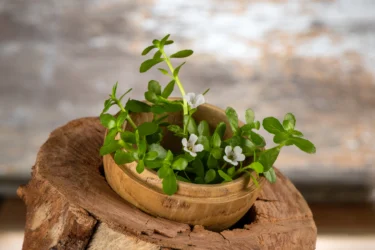
Brahmi has been traditionally used since long in both traditional Ayurvedic and Chinese medicine. It may help prevent formation of blood clots4. Bramhi can be consumed in the form of herbal juice, tea and powder at bed time for benefits.
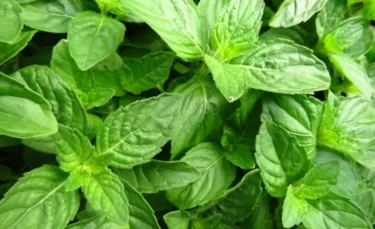
Tulsi has been used since ancient times to cure vascular diseases (disease that affects your circulatory system ) & other conditions. Tulsi extract has shown moderate to good activity in studies5 for breaking down clots. Since the preliminary studies make this claim, you must consult your doctor before using tulsi to manage blood clots. You can chew fresh tulsi leaves or drink tulsi tea for its benefits. You can prepare tulsi tea by boiling fresh or dried tulsi leaves in some water and straining the leaves.
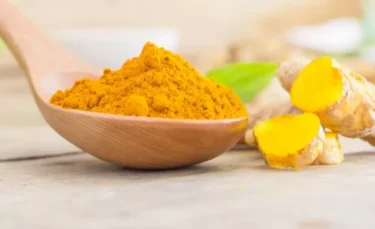
Turmeric extract has shown its benefits in dissolving blood clots in some studies5. Further studies are required to confirm this property of turmeric, therefore one must consult their doctor before using it to manage blood clots at home. You can add turmeric to food items like curries and soups or add it to hot water to make tea. You may also have turmeric by adding it to a glass of warm milk and consuming it immediately.
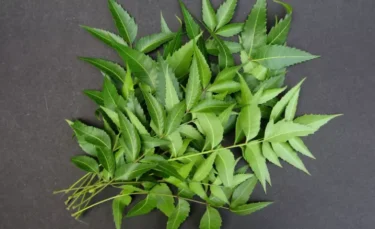
Neem extract was studied5 and found effective as it demonstrated good or moderate clot-breaking activity. To experience the benefits of neem, you can consume neem leaf extract or neem tablets.
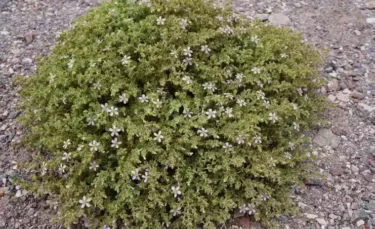
Dhamasa has been studied6 in vitro to possess thrombolytic properties that may dissolve blood clots. The best way to have fagonia or dhamasa powder is to mix it with heated desi ghee and consume it immediately.
You can prevent blood clots by following the simple measures given below:
Do not neglect any symptoms associated with blood clots, as they can pose a life-threatening risk. Increased clotting time, elevated platelet levels, fluctuating blood pressure and abnormal coagulation profiles serve as indicators that aid in recognizing the potential for clotting. Seek immediate medical attention for accurate diagnosis and effective management of such conditions.
Dr. Arpit Verma, MBBS, MD (Pharmacology)
Also Read: Natural Home Remedies for Tooth Decay
In case you suspect a blood clot, you should call your doctor right away. You should seek immediate medical attention if any blood clots form in your veins (venous clots) or arteries (arterial clots) as it can be very dangerous.
Also Read: Natural Blood Thinners: Benefits, Risks, and Precautions
Generally, a blood clot forms in response to an injury on a blood vessel. The formation of an unwanted blood clot needs to be attended immediately as it may be a serious condition. Symptoms of a blood clot depends on the place where the clot is formed while in some people the clot may not exhibit any symptoms. Natural remedies for blood clots can help you get relief from the condition and knowledge of the risks behind the condition will help you make the right decisions. You can also help yourself by keeping active and following your doctor’s suggestions and making necessary lifestyle changes.
Also Read: The Best Home Remedies For Hernia
Yes, blood clots are a life-threatening medical condition. In the condition where blood clots move in the body, also known as embolism, the blood clots formed in the legs, arms, and groin can move to other parts of your body such as lungs leading to pulmonary embolism2. If you suspect a blood clot, rush to the doctor or visit the emergency room right away.
Several home remedies like neem, bramhi, turmeric, garlic, tulsi etc. may help you get some relief from blood clots and may even dissolve the clots4,5, but you should always consult your doctor in case you feel you may have a blood clot as it is a very serious condition and can put your life in danger.
Yes, several lifestyle changes and preventive measures such as wearing compression socks, staying active, raising your legs 6 inches above the level of your heart from time to time, consuming low salt diet, and following the doctor’s advice can help you prevent blood clots2.
Yes, some factors are based on lifestyle choices that make you at higher risks of getting clots, such as smoking cigarettes.
Disclaimer: The information provided here is for educational/awareness purposes only and is not intended to be a substitute for medical treatment by a healthcare professional and should not be relied upon to diagnose or treat any medical condition. The reader should consult a registered medical practitioner to determine the appropriateness of the information and before consuming any medication. PharmEasy does not provide any guarantee or warranty (express or implied) regarding the accuracy, adequacy, completeness, legality, reliability or usefulness of the information; and disclaims any liability arising thereof.
Comments

Leave your comment...

View all comments(1)
You may also like
I found very much good informations about brain clots